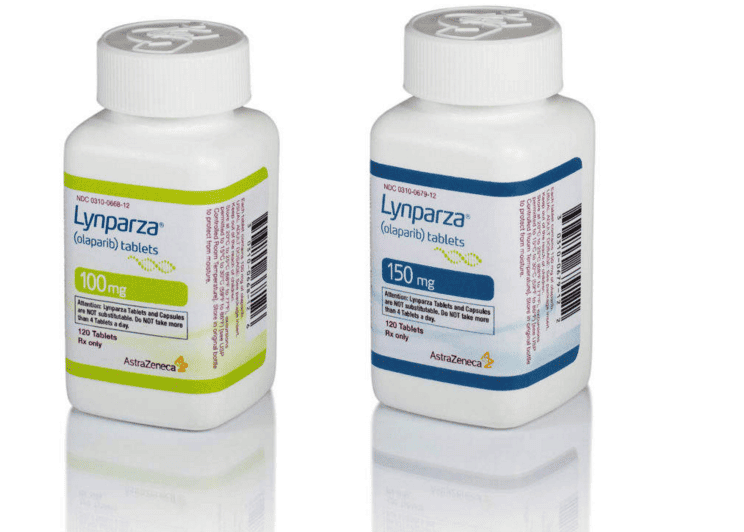
AstraZeneca and Merck & Co/MSD have reported positive phase 3 data for Lynparza in advanced castration-resistant prostate cancer (CRPC), a fourth potential indication for their PARP inhibitor.
The PROfound trial of Lynparza (olaparib) showed that AZ’s drug was able to extend the time to radiographic disease progression in men with CRPC,whose tumours had certain genetic mutations and had previously been treated with new-generation hormonal therapy.
It’s hard to overstate the potential significance of PARP inhibition in prostate cancer, which promises to unlock a new targeted treatment pathway that is independent of the traditional approach based on androgen inhibition, at least in a select patient population.
In the 340-patient trial, Lynparza was compared to hormonal treatment with Pfizer’s Xtandi (enzalutamide) or Johnson & Johnson’s Zytiga (abiraterone acetate) in this second-line setting, focusing on patients whose tumours had DNA damage repair gene defects known as homologous recombination repair gene mutations (HRRms).

José Baselga, head of cancer R&D, AstraZeneca
According to AZ’s head of cancer R&D José Baselga, Lynparza significantly extended radiographic progression-free survival (rPFS) in patients with a subpopulation of HRRms – namely BRCA1/BRCA2 and ATM mutations – and that makes PROfound “the only positive phase 3 trial of any PARP inhibitor” in CRPC.
That backs up Lynparza’s position as the dominant player in the PARP inhibitor category as it competes for market share with Clovis Oncology’s Rubraca (rucaparib), GlaxoSmithKline/Tesaro’s Zejula (niraparib) and Pfizer’s Talzenna (talazoparib).
It already has approval for ovarian and breast cancer and has also shown a benefit in late-stage data in pancreatic cancer, again the first in its class to do so.
The trial “also demonstrates the potential value of genomic testing in this at-risk patient population”,said Baselga, who added that AZ will be “discussing these results with global health authorities soon”.
The results back up the findings of a phase 2 trial called TOPARP-B, which was reported at this year’s ASCO congress and also involved patients who had been previously treated with Zytiga, Xtandi and sometimes both drugs.
Overall, 47% of men with DNA repair defects in their tumours responded to olaparib, and the drug delayed disease progression for a median of 5.5 months, which was almost three months longer than an earlier trial (TOPARB-A) that didn’t select for gene mutations.
Most of the benefit in TOPARP-B was seen in men with BRCA mutations, and to a lesser extent ATM and another mutation called PALB2.Those with other DNA repair mutations (eg CDK12) fared less well, and at first glance it seems that pattern may have been repeated in PROfound.
AZ is also conducting a phase 3 trial (PROPEL) of Lynparza in combination with Zytiga as a first-line therapy for CRPC.
Prostate cancer is the second-most common cancer in men, with an estimated 1.3 million new cases diagnosed worldwide in 2018, it said.




